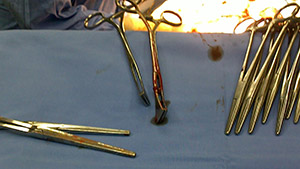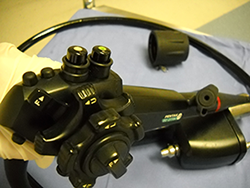
This year contaminated flexible endoscopes have reached the number one spot as the highest Health Technology Hazard, according to the 2016 ECRI institute’s Top 10 Health Technology Hazards report. Flexible scopes were fourth on the list in 2015 and sixth on the list in 2014.
In addition to this alarming news the FDA ordered Custom Ultrasonics to recall all of its endoscope reprocessors. The recall is the FDA’s latest move to reduce the spread of antibiotic-resistant bacteria via dirty endoscopes, particularly duodenoscopes. There have been at least six outbreaks (some of which resulted in patients dying) of multidrug-resistant bacteria associated duodenoscopes, even when the proper reprocessing instructions were followed. Read more

